0
Report
Community:
Jun 29, 2022
Looking largely at the 2020-2021 school year, the report is chock-full of information about how schools apply research-based strategies in a variety of different contexts – from very different school systems across multiple states – to make research translate into positive experiences and outcomes for students and their teachers in three critical areas:
• Instructional work, where math or English-language-arts teams, including instructional coaches, special-education teachers, and English learner/multilingual teachers, work to improve the quality of instruction within classrooms.
• Early Warning and Response strategies, where grade-level or cross-functional teams work to create more supportive school environments, where young people are connected to adults, each other, and the school community.
• Well-Matched Postsecondary initiatives, where school-based teams of counselors, service providers, district and school leaders, teachers, and other staff band together to implement evidence-based strategies and processes that support postsecondary application, enrollment, and persistence.
At its heart, improvement is about learning. Each of these networks study their own work, and consistently and strategically make adaptations to increase their effectiveness as the organizational hub supporting schools. And they demonstrate how lessons need not fade away, but when codified, systematized, and shared, they can deepen our collective capacity to accelerate the field’s learning and growth.
Authored by:
Topics: Advocacy, Attendance, Child welfare, CLPHA, Community development, Education, Grade-level proficiency, Housing, Literacy, Low-income, Partnerships, Place-based, Supportive housing, Sustainability, Youth
 Shared by Karina George
Shared by Karina George
Karina George posted a
on Jun 29, 2022
Looking largely at the 2020-2021 school year, the report is chock-full of information about how schools apply research-based strategies in a variety of different contexts – from very different school systems across multiple states – to make research translate into positive experiences and outcomes f
0
Podcast
Community:
Jan 13, 2021
On a day-to-day basis, vulnerable populations suffer from inequities in health, wealth, and education. These same people are then disproportionately impacted by catastrophes ranging from hurricanes to COVID-19, which only serve to underline the great and urgent need for equity across race, gender, and income. In the latest episode of The Intersect, Madeline Colety and Lorine Giangola discuss how Abt’s housing and resilience work is helping clients promote equity.
Authored by: Madeline Colety & Lorine Giangola for ABT ASSOCIATES
Topics: Advocacy, Community development, Education, Food insecurity, Health, Healthy homes, Homelessness, Housing, Low-income, Partnerships, Racial inequalities
 Shared by Housing Is
Shared by Housing Is
Housing Is posted a
on Jan 14, 2021
Madeline Colety & Lorine Giangola for ABT ASSOCIATES
On a day-to-day basis, vulnerable populations suffer from inequities in health, wealth, and education.
0
Report
Community: Postsecondary
May 2, 2019
Innovative public housing authorities (PHAs) are collaborating with college access partners and community colleges to increase postsecondary educational achievement for low-income residents and college students experiencing homelessness. This report elevates 11 shared learnings from a recent convening of these five pioneering PHAs and their postsecondary collaborators, and offers a series of recommendations to policy makers, PHAs, and philanthropic organizations seeking to develop emerging cross-sector collaborations between housing and education organizations. The report also includes an overview of the federal policies that support and limit postsecondary achievement for students served by PHAs, and profiles of the five partnerships: CHA and partners City Colleges of Chicago and One Million Degrees; CMHA and partner Columbus State Community College; HACLA and partner Southern California College Access Network (SoCal CAN); LMHA and partner Family Scholar House; and THA and partner Tacoma Community College.
Authored by: Abra Lyons-Warren for CLPHA
Topics: CLPHA, Education, Housing, Legislation & Policy, Low-income, Partnerships, Post-secondary, Stability
 Shared by Abra Lyons-Warren
Shared by Abra Lyons-Warren
Abra Lyons-Warren posted a
on Oct 6, 2020
Abra Lyons-Warren for CLPHA
Innovative public housing authorities (PHAs) are collaborating with college access partners and community colleges to increase postsecondary educational achievement for low-income residents and college students experiencing homelessness.
0
Report
Community:
Nov 7, 2019
How Housing Programs Can Support the Educational Needs of Children Living in Publicly Supported Homes
Authored by: Public and Affordable Housing Research Corporation
Topics: Attendance, Broadband, Child welfare, Early childhood, Health, Housing, Literacy, Low-income, Out-of-school time, Partnerships, Place-based, Research, School-readiness
 Shared by Kelly McElwain
Shared by Kelly McElwain
Kelly McElwain posted a
on Nov 7, 2019
Public and Affordable Housing Research Corporation
How Housing Programs Can Support the Educational Needs of Children Living in Publicly Supported Homes
0
Report
Community:
Jun 6, 2019
Trends in Housing Assistance and Who it Serves
Authored by: PAHRC
Topics: Community development, Disabilities, Education, Funding, Health, Homelessness, Housing, Legislation & Policy, Low-income, Partnerships, Research, Seniors, Workforce development, Youth
 Shared by Keely Stater
Shared by Keely Stater
Keely Stater posted a
on Sep 10, 2019
Trends in Housing Assistance and Who it Serves
0
Webinar
Community:
Jun 11, 2019
CLPHA’s Education Working Group convened on Tuesday, June 11 to learn about one of the Housing Authority of Kansas City’s (HAKC) newest housing communities: Pemberton Park, a subsidized apartment building that serves grandparents caring for grandchildren. Representatives from HAKC and their partners discussed the process of establishing the grand-family complex, as well as challenges and successes they experienced along the way.
Authored by: CLPHA, Housing Is
Topics: Education, Family engagement, Housing, Housing Is Working Group, Low-income, Partnerships, Seniors, Youth
 Shared by Housing Is
Shared by Housing Is
Housing Is posted a
on Jun 11, 2019
CLPHA’s Education Working Group convened on Tuesday, June 11 to learn about one of the Housing Authority of Kansas City’s (HAKC) newest housing communities: Pemberton Park, a subsidized apartment building that serves grandparents caring for grandchildren.
0
Video
Community:
May 24, 2019
With ever-growing interest in the intersection between housing and health, researchers are evaluating the impact of cross-sector interventions. This session will bring together researchers to share insights from their work relevant to practitioners and policymakers.
Authored by: Housing Is, CLPHA
Topics: CLPHA, Health, Homelessness, Housing, Low-income, Partnerships, Research, Seniors
 Shared by Housing Is
Shared by Housing Is
Housing Is posted a
on May 24, 2019
With ever-growing interest in the intersection between housing and health, researchers are evaluating the impact of cross-sector interventions. This session will bring together researchers to share insights from their work relevant to practitioners and policymakers.
0
Video
Community:
May 24, 2019
A landmark National Academies of Sciences report commissioned by Congress concludes that childhood poverty in the U.S. could be cut in half within a decade with appropriate action. The report culls through the existing evidence-base to identify the most impactful existing policies including the Earned Income Tax Credit (EITC) and housing assistance. This panel will also discuss promising new policies that if enacted could help reduce poverty such as the child allowance.
Authored by: Housing Is, CLPHA
Topics: Child welfare, CLPHA, Housing, Legislation & Policy, Low-income, Partnerships, Research
 Shared by Housing Is
Shared by Housing Is
Housing Is posted a
on May 24, 2019
A landmark National Academies of Sciences report commissioned by Congress concludes that childhood poverty in the U.S. could be cut in half within a decade with appropriate action.
0
Publication
Community:
Founded in 1995 as Project Women, Family Scholar House (FSH) provides comprehensive, holistic services for disadvantaged single parents, their children, and foster alumni. The nonprofit seeks to end the cycle of poverty and transform communities by empowering families and youth to succeed in education and life-long self-sufficiency. FSH provides supportive housing, educational programming, and participant advocacy to help families gain independence.
Authored by: American Planning Association
Topics: Dual-generation, Early childhood, Education, Homelessness, Housing, Low-income, Partnerships, Place-based, Post-secondary, South, Stability
 Shared by Mica O'Brien
Shared by Mica O'Brien
Mica O'Brien posted a
on Apr 18, 2019
American Planning Association
Founded in 1995 as Project Women, Family Scholar House (FSH) provides comprehensive, holistic services for disadvantaged single parents, their children, and foster alumni.
0
News Article
Community:
Apr 14, 2019
In 2014 Caselli started Haven Connect, which is now based in Austin, to make it easier for property managers to communicate with affordable housing applicants, including those who are and aren’t homeless, and for applicants to update their information online.
Authored by: Anne Field for Forbes
Topics: Broadband, Homelessness, Housing, Low-income, Partnerships, South
 Shared by Housing Is
Shared by Housing Is
Housing Is posted a
on Apr 16, 2019
In 2014 Caselli started Haven Connect, which is now based in Austin, to make it easier for property managers to communicate with affordable housing applicants, including those who are and aren’t homeless, and for applicants to update their information online.
0
Report
Community:
Apr 8, 2019
While the program has changed very little since its inception, the need for the program has increased. In 1975, the number of program grantees stood at 594. Today, the number of grantees stands at 1,268 as more communities qualify to receive direct program allocations. Based on a CDBG Needs Survey conducted by the CDBG Coalition (and discussed later in this report), CDBG grantees have delayed and canceled projects and reduced or permanently eliminated programs because of a lack of CDBG funds. CDBG is an important investment tool for communities and neighborhoods, but program funding must increase to meet local need to ensure CDBG grantee communities are healthy, vibrant and thriving.
Authored by:
Topics: Community development, Funding, Health, Homelessness, Housing, Legislation & Policy, Low-income, Partnerships, Research, Safety, Seniors
 Shared by Housing Is
Shared by Housing Is
Housing Is posted a
on Apr 8, 2019
A report of the CDBG Coalition
While the program has changed very little since its inception, the need for the program has increased. In 1975, the number of program grantees stood at 594. Today, the number of grantees stands at 1,268 as more communities qualify to receive direct program allocations.
0
Research
Community:
Feb 22, 2019
Thoughtfully developed, accessible communities may boost parent engagement and student outcomes in low-income neighborhoods
Authored by: Rachel Sturtz for University of Colorado Denver
Topics: Community development, Education, Family engagement, Housing, Low-income, Partnerships, Racial inequalities, Transportation
 Shared by Housing Is
Shared by Housing Is
Housing Is posted a
on Apr 4, 2019
Rachel Sturtz for University of Colorado Denver
Thoughtfully developed, accessible communities may boost parent engagement and student outcomes in low-income neighborhoods
0
Publication
Community:
The Keeping Families Together model turned the usual paradigm for prioritizing affordable housing on its head. Rather than targeting the most “stable” families, Keeping Families Together sought out families with the most complicated cases—those at greatest risk. Thanks to this approach, families once on the brink of crisis now have a permanent place to call home, as well as the services and support they need to stay together.
Authored by: CSH
Topics: Child welfare, Family engagement, Homelessness, Housing, Low-income, Partnerships, Research, Supportive housing
 Shared by Housing Is
Shared by Housing Is
Housing Is posted a
on Apr 4, 2019
The Keeping Families Together model turned the usual paradigm for prioritizing affordable housing on its head. Rather than targeting the most “stable” families, Keeping Families Together sought out families with the most complicated cases—those at greatest risk.
0
News Article
Community:
Mar 18, 2019
Now colleges and universities themselves are pulling together more permanent solutions, often in collaboration with local housing authorities and non-profit partners. In some cases, colleges and universities are trying to avoid losing enrollment; not surprisingly, students in unstable living environments or who can't afford food have poorer physical health, symptoms of depression and psychological stress, and are more likely to drop out, research shows.
Authored by: Charlotte West for Pacific Standard
Topics: CLPHA, Homelessness, Housing, Low-income, Partnerships, Post-secondary, West Coast
 Shared by Mica O'Brien
Shared by Mica O'Brien
Mica O'Brien posted a
on Mar 26, 2019
Charlotte West for Pacific Standard
Now colleges and universities themselves are pulling together more permanent solutions, often in collaboration with local housing authorities and non-profit partners.
0
Research
Community:
Mar 20, 2019
Launched in 2016, the Denver Supportive Housing SIB aims to support residents struggling with homelessness, substance use, and mental health problems by increasing the number of people getting and staying housed and reducing the number of days they spend in jail. The permanent supportive housing model combines a permanent housing subsidy with wraparound services, such as mental health counseling, to help people improve their stability. In Denver, MHCD and the Colorado Coalition for the Homeless (CCH) were selected to offer these services as part of the SIB.
Authored by: The Urban Institute
Topics: Cost effectiveness, Criminal justice, Homelessness, Housing, Low-income, Pacific Northwest, Partnerships, Research, Substance abuse
 Shared by Mica O'Brien
Shared by Mica O'Brien
Mica O'Brien posted a
on Mar 26, 2019
Launched in 2016, the Denver Supportive Housing SIB aims to support residents struggling with homelessness, substance use, and mental health problems by increasing the number of people getting and staying housed and reducing the number of days they spend in jail.
0
News Article
Community:
Mar 12, 2019
Kaiser is investing $200 million in low-interest loans for affordable housing nationwide. This may be part of a growing national trend of health maintenance organizations investing in housing to improve community health. In Phoenix, United Healthcare lent money to a community development corporation, Chicanos Por La Causa, to purchase apartment complexes for Medicaid recipients. In Chicago, the University of Illinois Hospital helps to find permanent housing for homeless people who regularly present at its emergency department.
Authored by: Raquel Maria Dillon for Market Place
Topics: Affordable Care Act, Community development, Health, Homelessness, Housing, Low-income, Partnerships, West Coast
 Shared by Mica O'Brien
Shared by Mica O'Brien
Mica O'Brien posted a
on Mar 14, 2019
Raquel Maria Dillon for Market Place
Kaiser is investing $200 million in low-interest loans for affordable housing nationwide. This may be part of a growing national trend of health maintenance organizations investing in housing to improve community health.
0
News Article
Community:
Oct 1, 2018
When children get sick from poor living conditions inside their rundown apartments, they miss school. And when 95 percent of students of one school live in the same apartment complex—where evictions are routine and black mold is rampant—classrooms are often left empty.
Authored by: Jamie Hwang for the American Bar Association Journal
Topics: Attendance, Child welfare, Education, Health, Housing, Low-income, Partnerships, Place-based, Youth
 Shared by Housing Is
Shared by Housing Is
Housing Is posted a
on Mar 11, 2019
Jamie Hwang for the American Bar Association Journal
When children get sick from poor living conditions inside their rundown apartments, they miss school. And when 95 percent of students of one school live in the same apartment complex—where evictions are routine and black mold is rampant—classrooms are often left empty.
0
News Article
Community:
Mar 6, 2019
Fort Worth’s work finding housing solutions for those facing homelessness can serve as a model for the rest of the country, Housing and Urban Development Secretary Ben Carson said Wednesday during a stop in Cowtown, one of several planned in Texas.
Authored by: Luke Ranker for Fort Worth Star-Telegram
Topics: Funding, Homelessness, Housing, Legislation & Policy, Low-income, Partnerships, South
 Shared by Housing Is
Shared by Housing Is
Housing Is posted a
on Mar 11, 2019
Luke Ranker for Fort Worth Star-Telegram
Fort Worth’s work finding housing solutions for those facing homelessness can serve as a model for the rest of the country, Housing and Urban Development Secretary Ben Carson said Wednesday during a stop in Cowtown, one of several planned in Texas.
0
Publication
Community:
Education Leads Home’s State Partnerships on Student Homelessness Project brings together policymakers and practitioners from with the goal of overcoming child and youth homelessness through education. Through the partnership, each state is committed to researching and implementing replicable best practices that address the most urgent needs of their unique homeless student populations. The State Partnerships on Student Homelessness Project is a nonpartisan effort to develop best practices that can be replicated by communities and states nationwide. In its inaugural year of the project, Education Leads Home (ELH) awarded six states – California, Kentucky, Hawaii, Nevada, Oregon, and Washington – small grants through a competitive process. ELH will provide ongoing technical assistance.
Authored by: Education Leads Home
Topics: Child welfare, Education, Funding, Homelessness, Housing, Low-income, Partnerships, Youth
 Shared by Housing Is
Shared by Housing Is
Housing Is posted a
on Mar 5, 2019
Education Leads Home’s State Partnerships on Student Homelessness Project brings together policymakers and practitioners from with the goal of overcoming child and youth homelessness through education.
0
Report
Community:
Feb 19, 2019
Integrating health care data with data from other sectors helps address the holistic needs of individual patients while informing the development of population-level programs and policies that can improve outcomes, both in health care and other sectors. This paper provides guidance for those in non-health care sectors (e.g. housing, social services, community-based organizations) on effectively engaging and advancing conversations with health care stakeholders about collaborating to share data, focusing on the specific stakeholder of hospitals/health systems.
Authored by: Data Across Sectors for Health (DASH)
Topics: Health, Housing, Low-income, Medicaid / Medicare, Partnerships
 Shared by Mica O'Brien
Shared by Mica O'Brien
Mica O'Brien posted a
on Feb 20, 2019
Data Across Sectors for Health (DASH)
Integrating health care data with data from other sectors helps address the holistic needs of individual patients while informing the development of population-level programs and policies that can improve outcomes, both in health care and other sectors.
0
Podcast
Community:
Feb 14, 2019
John King served in President Barack Obama’s cabinet as the 10th U.S. Secretary of Education. Secretary King is one of the most prominent voices on the connections between housing policy and education policy, particularly with respect to pervasive socioeconomic and racial segregation. We sat down with Secretary King in Los Angeles to discuss the state of modern-day school and housing segregation, why he prioritized integration while in office, promising practices on both the education and housing fronts, and why education advocates must also be housing advocates.
“As citizens, we need to be engaged on the issues that affect the kids and families that we serve,” said Secretary King. “We have to be engaged on housing…We have a responsibility as educators to be engaged across a range of issues.”
Authored by: Opportunity Starts at Home
Topics: Child welfare, Education, Homelessness, Housing, Legislation & Policy, Low-income, Partnerships, Youth
 Shared by Mica O'Brien
Shared by Mica O'Brien
Mica O'Brien posted a
on Feb 19, 2019
Opportunity Starts at Home
John King served in President Barack Obama’s cabinet as the 10th U.S. Secretary of Education. Secretary King is one of the most prominent voices on the connections between housing policy and education policy, particularly with respect to pervasive socioeconomic and racial segregation.
0
Webinar
Community:
Feb 12, 2019
During CLPHA’s Education Working Group Webinar on addressing school attendance at PHAs, representatives from the King County Housing Authority and the national nonprofit Attendance Works presented on tools for addressing chronic absenteeism, as well as strategies for fostering a culture of attendance among residents.
Authored by: CLPHA, Housing Is
Topics: Attendance, CLPHA, Dual-generation, Education, Housing, Housing Is Working Group, Low-income, Metrics, Partnerships, Place-based
 Shared by Housing Is
Shared by Housing Is
Housing Is posted a
on Feb 12, 2019
During CLPHA’s Education Working Group Webinar on addressing school attendance at PHAs, representatives from the King County Housing Authority and the national nonprofit Attendance Works presented on tools for addressing chronic absenteeism, as well as strategies for fostering a culture of attendanc
0
Publication
Community:
Jan 18, 2019
The State of Arizona’s Medicaid agency (AHCCCS) recognizes the vital importance of safe, decent and affordable housing to health. With a portfolio of over 3,000 units of affordable housing for Medicaid members with a determination of serious mental illness (SMI) and/or substance use disorder, housing is a major component of how the State of Arizona assists those trying to recover and stabilize.
Authored by: Josh Crites for The Journal of Housing & Community Development
Topics: Health, Housing, Low-income, Medicaid / Medicare, Partnerships, Place-based
 Shared by Mica O'Brien
Shared by Mica O'Brien
Mica O'Brien posted a
on Feb 7, 2019
Josh Crites for The Journal of Housing & Community Development
The State of Arizona’s Medicaid agency (AHCCCS) recognizes the vital importance of safe, decent and affordable housing to health.
1
News Article
Community:
Jun 11, 2018
At a recent public meeting, Sandra Lee Fewer, a member of the city’s Board of Supervisors, asked acting librarian Michael Lambert to explore whether future library renovations might include affordable housing. Fewer hopes to leverage existing public land to create multi-story facilities that include both libraries and housing.
Authored by: Steve Dubb for NPQ
Topics: Community development, Homelessness, Housing, Literacy, Low-income, Partnerships, Place-based, Research, Youth
 Shared by Housing Is
Shared by Housing Is
Housing Is posted a
on Jan 29, 2019
At a recent public meeting, Sandra Lee Fewer, a member of the city’s Board of Supervisors, asked acting librarian Michael Lambert to explore whether future library renovations might include affordable housing.
0
News Article
Community:
Jan 24, 2019
A new collaboration of San Francisco Bay Area foundations and businesses is raising $540 million to tackle the region’s affordable housing crisis.
Authored by: Affordable Housing Finance
Topics: Community development, Health, Housing, Low-income, Partnerships, Supportive housing, West Coast
 Shared by Housing Is
Shared by Housing Is
Housing Is posted a
on Jan 28, 2019
Affordable Housing Finance
A new collaboration of San Francisco Bay Area foundations and businesses is raising $540 million to tackle the region’s affordable housing crisis.
 Shared by Karina George
on Jun 29, 2022
Shared by Karina George
on Jun 29, 2022

 Shared by Housing Is
on Jan 14, 2021
Shared by Housing Is
on Jan 14, 2021

 Shared by Abra Lyons-Warren
on Oct 6, 2020
Shared by Abra Lyons-Warren
on Oct 6, 2020
 Shared by Kelly McElwain
on Nov 7, 2019
Shared by Kelly McElwain
on Nov 7, 2019

 Shared by Keely Stater
on Sep 10, 2019
Shared by Keely Stater
on Sep 10, 2019

 Shared by Housing Is
on Jun 11, 2019
Shared by Housing Is
on Jun 11, 2019
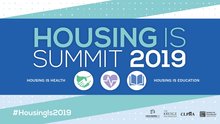
 Shared by Housing Is
on May 24, 2019
Shared by Housing Is
on May 24, 2019

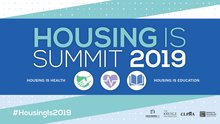
 Shared by Housing Is
on May 24, 2019
Shared by Housing Is
on May 24, 2019




 Shared by Housing Is
on Apr 16, 2019
Shared by Housing Is
on Apr 16, 2019

 Shared by Housing Is
on Apr 8, 2019
Shared by Housing Is
on Apr 8, 2019

 Shared by Housing Is
on Apr 4, 2019
Shared by Housing Is
on Apr 4, 2019

 Shared by Housing Is
on Apr 4, 2019
Shared by Housing Is
on Apr 4, 2019
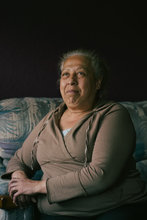

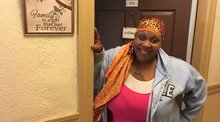

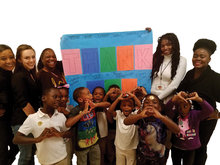
 Shared by Housing Is
on Mar 11, 2019
Shared by Housing Is
on Mar 11, 2019

 Shared by Housing Is
on Mar 11, 2019
Shared by Housing Is
on Mar 11, 2019

 Shared by Housing Is
on Mar 5, 2019
Shared by Housing Is
on Mar 5, 2019

 Shared by Housing Is
on Feb 12, 2019
Shared by Housing Is
on Feb 12, 2019

 Shared by Housing Is
on Jan 29, 2019
Shared by Housing Is
on Jan 29, 2019

 Shared by Housing Is
on Jan 28, 2019
Shared by Housing Is
on Jan 28, 2019




